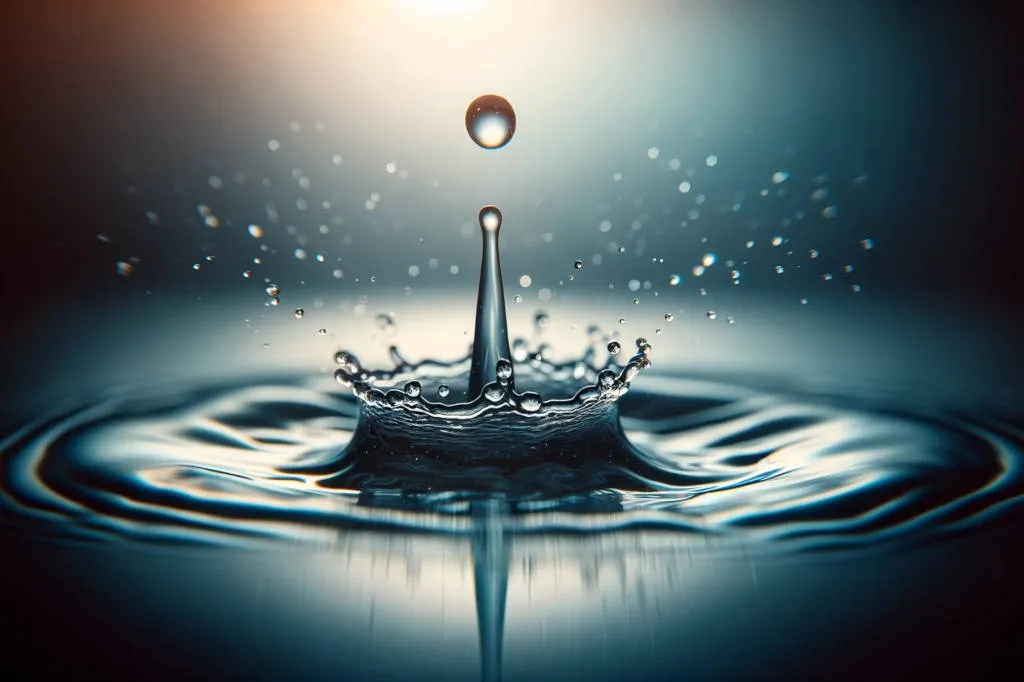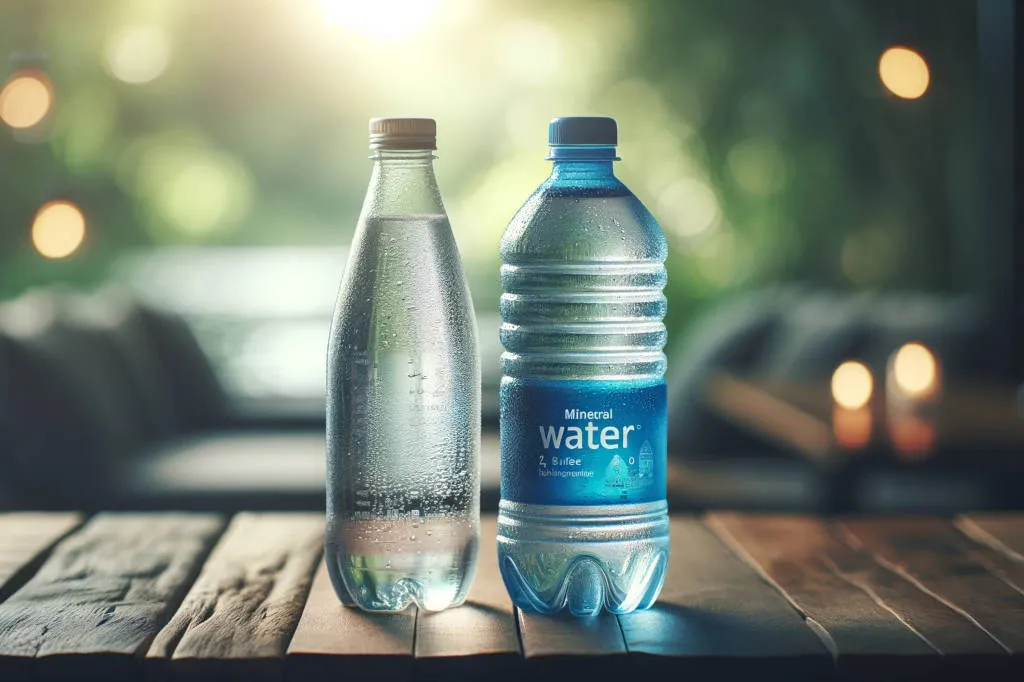In the age of enhanced beverages, many find themselves pondering, “Can I drink electrolyte water everyday?” With its touted benefits for hydration, especially post-exercise, electrolyte water has surged in popularity. However, before you make it your daily go-to drink, it’s essential to understand its properties, benefits, and potential drawbacks. In this comprehensive guide, we’ll dive deep into the world of electrolyte water, helping you make an informed decision tailored to your individual health and wellness needs.
Table of Contents
What is Electrolyte Water?
Electrolyte water, often hailed as a superior hydrating solution, has been gaining popularity among athletes, fitness enthusiasts, and even those simply looking to optimize their daily hydration. But what makes it different from your standard tap water?
Electrolyte water is specifically formulated to contain dissolved minerals, known as electrolytes. These essential minerals – such as sodium, potassium, calcium, and magnesium – play critical roles in maintaining various physiological processes in our body. They help in regulating nerve and muscle functions, balancing blood pH levels, rebuilding damaged tissue, and more.
When you sweat, be it from exercise, high temperatures, or other factors, you’re not just losing water. You’re also losing these crucial electrolytes. This is where electrolyte water steps in, aiming to replenish what’s lost and ensure the body’s continued smooth functioning.
There are various brands and formulations of electrolyte water available in the market, ranging from those targeted at high-performance athletes to everyday consumers. Some may have added flavors, vitamins, or even additional components like antioxidants.
By understanding the fundamental properties of electrolyte water, one can make an informed decision about incorporating it into their daily routine, leading to the central question: Can I drink electrolyte water everyday? As we delve deeper into this topic, we’ll explore the benefits and potential considerations around this hydration choice.
Functions of Electrolytes in the Body
Electrolytes aren’t just buzzwords used in the beverage industry; they have essential roles that support the body’s day-to-day functions. Whether you’re questioning, “Can I drink electrolyte water everyday?” or just seeking a deeper understanding, it’s pivotal to grasp the importance of these minerals.

- Nerve Function: Electrolytes are indispensable for transmitting electrical signals in the body. Sodium and potassium, in particular, are vital in maintaining the cell’s electrical charge and transmitting nerve impulses. An imbalance can result in symptoms like muscle twitching or even seizures.
- Muscle Function: Calcium plays a key role in muscle contraction. When levels drop too low, it can lead to muscle cramps or spasms. On the other hand, potassium facilitates muscle relaxation, underscoring its importance in the balance of muscle activity.
- Acid-Base Balance: Our blood’s pH level, which determines its acidity or alkalinity, is finely regulated. Electrolytes like bicarbonates help maintain this balance, ensuring our blood remains at a stable pH around 7.4. Deviations can lead to conditions like acidosis or alkalosis.
- Fluid Balance: Ever heard of osmosis? Sodium largely dictates the balance of water inside and outside our cells. By determining fluid balance, it ensures that our cells function optimally, preventing issues like dehydration or overhydration.
- Bone Health: Electrolytes like calcium and phosphorus are integral components of our bones. They not only give bones their structure but also play roles in bone remodeling, a continuous process of formation and resorption.
- Energy Production: Magnesium is often overshadowed, but it’s a co-factor in over 300 enzyme systems in our body. One of its pivotal roles is in the production of ATP, the body’s primary energy molecule.
- Heart Function: Electrolytes ensure the heart’s electrical activity remains stable, preventing arrhythmias. They also regulate blood pressure with sodium influencing fluid volume and potassium helping relax blood vessel walls.
Through understanding these functions, it becomes clear just how significant electrolytes are for our well-being. This foundational knowledge sets the stage for our exploration of whether drinking electrolyte water every day is beneficial or excessive.
Benefits of Drinking Electrolyte Water
When people ask, “Can I drink electrolyte water everyday?”, they’re often thinking about the potential benefits it could offer. Electrolyte water isn’t just a sports drink for athletes; it can offer numerous advantages to everyday individuals too.

- Optimal Hydration: Regular water hydrates, but electrolyte water takes it a step further. With its mineral content, it can replenish lost fluids and electrolytes faster and more effectively, making it especially valuable after intense physical activity.
- Supports Exercise Recovery: Post-workout, our muscles are weary and our body has lost both fluids and salts. Electrolyte water can restore this balance quicker, potentially speeding up recovery and reducing muscle soreness.
- Enhanced Nerve and Muscle Function: As discussed earlier, electrolytes play a vital role in nerve transmission and muscle contraction. Consuming electrolyte water can help maintain optimal levels, supporting these essential processes.
- Prevents Dehydration: In situations where you’re losing more fluids, like during illnesses that cause vomiting or diarrhea, electrolyte water can be a boon. It not only rehydrates but also restores the body’s essential mineral balance.
- Supports pH Balance: Our body’s pH is delicately balanced. Electrolyte water, rich in bicarbonates, can assist in maintaining this acid-base equilibrium, especially if you consume a diet high in acidic foods.
- Tastes Better: For many, the slight salty taste of electrolyte water is more palatable than plain water, encouraging them to drink more and stay hydrated.
Electrolyte water is more than a trend; it’s a functional beverage with tangible benefits. However, as with all things, moderation is key. While considering if you can drink electrolyte water everyday, it’s also crucial to be aware of its potential downsides, especially when consumed in excess.
Daily Electrolyte Needs
“Can I drink electrolyte water everyday?” To answer this question adequately, we first need to understand our body’s daily electrolyte needs. Electrolytes are vital for various physiological processes, and their daily requirements vary based on factors like age, gender, climate, and physical activity levels.

- Sodium: An essential electrolyte that helps maintain the balance of water in and around your cells. The recommended daily intake is about 1500 mg to 2300 mg for most adults, though it may be less for those with certain medical conditions.
- Potassium: Critical for heart and muscle function, the daily recommendation is around 2600 mg for women and 3400 mg for men.
- Calcium: Vital for bone health and muscle function, adults typically require about 1000 mg to 1300 mg daily, depending on age and gender.
- Magnesium: Supports muscle and nerve function, protein synthesis, and more. Men require around 400-420 mg, while women need approximately 310-320 mg daily.
- Chloride: Works closely with sodium to maintain proper fluid balance. The recommended daily intake is around 2300 mg for adults.
- Phosphate: Essential for energy production and bone health, the daily requirement is roughly 700 mg for adults.
- Bicarbonate: While there isn’t a strict daily recommendation, it plays a crucial role in maintaining the pH balance in our blood.
While electrolyte-enhanced water can contribute to meeting these daily requirements, it’s crucial to remember that a balanced diet will typically provide most of the essential electrolytes. Relying solely on electrolyte water might not be sufficient, and in some cases, might even lead to an overconsumption of certain minerals.
While it might be tempting to increase your electrolyte water consumption to meet these daily requirements, always be mindful of the total intake from all sources. Too much of even a good thing can have adverse effects.
Scenarios When Electrolyte Water is Beneficial
While it’s not always necessary to drink electrolyte-enhanced water daily, there are certain situations where it can be particularly beneficial. Let’s delve into these scenarios:

- Intense Physical Activity: After a vigorous workout, especially one that lasts over an hour, our bodies lose electrolytes through sweat. Drinking electrolyte water can help replenish these essential minerals and prevent muscle cramps or fatigue.
- Hot and Humid Climates: When we’re exposed to high temperatures and humidity, we tend to sweat more, leading to a loss of electrolytes. Drinking electrolyte water can help maintain hydration and balance in these situations.
- Illness with Vomiting or Diarrhea: Illnesses that lead to significant fluid loss, like gastroenteritis, can disrupt our electrolyte balance. Electrolyte water can be an effective way to rehydrate and restore the balance.
- Hangovers: Alcohol is diuretic and can cause dehydration and electrolyte imbalances. Consuming electrolyte water during a hangover can aid in faster recovery.
- Dietary Restrictions: People on certain diets, like low-carb or ketogenic diets, may benefit from electrolyte water as these diets can sometimes lead to a reduction in stored electrolytes.
- Chronic Conditions: Patients with chronic conditions like cystic fibrosis, which affects salt balance in the body, may need extra electrolytes. However, always consult with a healthcare professional before making it a regular part of the routine.
While electrolyte water can be beneficial in these scenarios, it’s essential to remember not to overdo it. Drinking excessive amounts of electrolyte water when it’s not needed might lead to imbalances in the body.
By understanding when to incorporate electrolyte water into your routine, you can make informed decisions that align with your body’s needs.
Potential Dangers of Overconsumption
The question, “Can you drink electrolyte water everyday?” is one many individuals ask, especially those who’ve recognized the benefits of electrolyte replenishment. However, it’s crucial to understand that while electrolyte water offers numerous advantages, consuming it excessively can lead to some potential issues.

- Electrolyte Imbalance: Ironically, one of the primary risks of consuming too much electrolyte water is disrupting the very balance it aims to support. Overloading the body with minerals like sodium, potassium, and magnesium can lead to conditions like hyperkalemia (high potassium) or hypernatremia (high sodium), which can be harmful.
- Hypertension: Overconsumption of sodium, commonly found in some electrolyte waters, can result in high blood pressure for those predisposed or sensitive to salt.
- Water Intoxication: Drinking excessive amounts of any liquid, including electrolyte water, can lead to hyponatremia or water intoxication. This condition arises when the body’s sodium levels become dangerously low, leading to symptoms like nausea, headache, seizures, or even coma in severe cases.
- Caloric Intake: Some brands of electrolyte water might contain added sugars, leading to an unintentional increase in daily caloric intake when consumed in large quantities. This could contribute to weight gain over time.
- Costly Habit: Drinking electrolyte water daily can be more expensive than regular tap or filtered water, especially if one’s daily activities don’t demand the additional electrolyte replenishment.
- Environmental Impact: Relying heavily on bottled electrolyte waters can contribute to plastic waste, which has a detrimental impact on our environment.
To ensure you’re benefiting from electrolyte water without the associated risks, it’s essential to consume it in moderation, especially when your body doesn’t necessarily demand increased electrolyte replenishment.
When deciding on the frequency of drinking electrolyte water, always consider your body’s unique needs, and when in doubt, consult with a healthcare professional.
Can I Drink Electrolyte Water Everyday?
One of the most commonly asked questions about electrolyte water is, “Can I drink electrolyte water every day?” To answer succinctly: Yes, you can, but with certain considerations in mind.

- Daily Activities and Needs: If you’re someone who engages in rigorous physical activities daily, like long-distance running, high-intensity workouts, or labor-intensive jobs, your body might require a more frequent electrolyte replenishment. In such cases, drinking electrolyte water daily could be beneficial.
- Climate and Environment: If you live in a hot and humid environment where you sweat profusely, the daily consumption of electrolyte water can help restore the minerals lost through perspiration.
- Dietary Intake: Your diet plays a significant role in your electrolyte balance. If you consume a balanced diet rich in essential minerals, you might not need to rely on electrolyte water as much. On the contrary, if your diet lacks these minerals, a daily dose could be helpful.
- Health Conditions: Some individuals have medical conditions or take medications that affect their electrolyte levels. If you fall into this category, it’s crucial to consult with a healthcare professional before making electrolyte water a daily habit.
- Listen to Your Body: Always pay attention to how your body reacts. If you feel better and more hydrated with daily electrolyte water consumption, it might be suitable for you. However, if you experience symptoms like bloating or hypertension, it might be a sign to cut back.
In conclusion, while it’s generally safe to drink electrolyte water every day, it’s essential to understand your body’s unique needs. Moderation is key. Consuming it when your body genuinely requires electrolyte replenishment is the best approach.
Remember, while electrolyte water offers a convenient way to restore mineral balance, it should complement a balanced diet and a healthy lifestyle rather than replace them.
Factors to Consider Before Drinking Electrolyte Water Daily
While the prospect of drinking electrolyte water every day might sound enticing, especially with the numerous benefits associated with it, there are several factors one should consider before incorporating it as a daily habit. Let’s delve into these considerations:

- Individual Electrolyte Needs: Everyone’s body is different, and the same goes for our electrolyte requirements. Factors such as age, gender, overall health, and activity level play a significant role in determining how much of each electrolyte we need.
- Source of Electrolytes: Not all electrolyte waters are created equal. Some are packed with artificial flavors, sugars, and other undesirable ingredients. Before making a daily habit, check the label for any additives and ensure the electrolyte source is natural and beneficial.
- Caloric and Sugar Content: Some electrolyte drinks can be high in sugars, which can lead to weight gain if consumed in large quantities. Assess the nutritional label to ensure that you’re not adding unnecessary calories or sugars to your diet.
- Cost: Drinking branded electrolyte water daily can be expensive over time. It’s essential to budget and, if possible, look for cost-effective ways to replenish your electrolytes, like natural foods or homemade electrolyte solutions.
- Environmental Impact: Relying heavily on bottled electrolyte waters contributes to plastic waste. If you’re considering daily consumption, think about the environmental footprint and look for sustainable packaging options or brands that support recycling.
- Underlying Health Issues: Conditions like kidney disease, heart problems, or hypertension can affect how the body processes and maintains electrolytes. Before incorporating electrolyte water into your daily routine, it’s prudent to consult with a healthcare professional.
In essence, while drinking electrolyte water daily can offer numerous health benefits, it’s vital to weigh these factors to make an informed decision tailored to your individual needs and circumstances.
Considering these factors ensures that your decision to drink electrolyte water every day is not only beneficial for your health but also for your pocket and the environment.
How to Choose the Right Electrolyte Water
Selecting the right electrolyte water can sometimes be overwhelming, given the plethora of options available in the market. To ensure you’re making the best choice for your needs and health, consider the following factors:

- Ingredient List: Always start by looking at the ingredient list. A good electrolyte water should contain essential electrolytes like sodium, potassium, magnesium, and calcium. Be wary of products with a long list of artificial preservatives, sweeteners, and flavors.
- Sodium-to-Potassium Ratio: These are two vital electrolytes, and their balance is crucial. Generally, an ideal electrolyte solution should have a higher concentration of sodium than potassium, mimicking the natural balance in our body fluids.
- Sugar Content: While some sugars can aid quick energy restoration, especially after intense physical activity, it’s essential to avoid brands high in added sugars. Look for those with natural sweeteners or minimal sugar content.
- Calorie Count: If you’re health or weight-conscious, consider the calorie content. Some electrolyte waters can be calorie-dense due to added sugars and flavorings.
- Taste: It might seem trivial, but taste matters, especially if you plan to consume something regularly. Sampling different brands or flavors can help you find one you genuinely enjoy.
- Price and Brand Reputation: While the most expensive option isn’t always the best, it’s essential to consider brand reputation. Research or read reviews to see what others are saying about a particular product.
- Packaging: For those conscious about the environment, consider the packaging. Opt for brands that use biodegradable or recyclable materials.
- Specific Needs: Athletes or those with specific medical conditions might need specialized formulations. There are electrolyte waters tailored for post-workout recovery, hydration for the elderly, or specific medical needs.
To sum it up, choosing the right electrolyte water boils down to understanding your body’s requirements and being informed about what’s inside the bottle. By considering the factors mentioned above, you’ll be well-equipped to make a choice that complements your lifestyle and health goals.
With these considerations in mind, you can confidently navigate the vast world of electrolyte waters and pick the best option for your daily hydration needs.
Alternatives to Store-Bought Electrolyte Water
While store-bought electrolyte water offers convenience, many health-conscious individuals prefer homemade alternatives that give them full control over ingredients and concentrations. Here are some popular alternatives to commercial electrolyte waters:

- Lemon Salt Water: A straightforward concoction, this requires just a pinch of salt and freshly squeezed lemon juice added to a glass of water. Both lemon and salt are rich in essential electrolytes and can be easily adjusted to taste.
- Coconut Water: Often termed as ‘nature’s electrolyte water,’ coconut water naturally contains five essential electrolytes: sodium, potassium, calcium, magnesium, and phosphorus. It’s a refreshing drink and is best consumed fresh.
- Herbal Teas: Certain herbal teas, especially those made from hibiscus or nettles, have a considerable electrolyte content. You can brew a strong cup and sweeten it with a touch of honey or stevia if desired.
- Diluted Fruit Juice: While pure fruit juices can be high in sugar, diluting them with water can balance out the sugar content while still providing essential vitamins and minerals. Add a pinch of salt, and you have a homemade electrolyte drink.
- Chia Seed Drink: Chia seeds are known for their high fiber and omega-3 content, but they’re also a decent source of electrolytes. Soak chia seeds in water, add a dash of lemon or lime juice, and sweeten if desired for a hydrating beverage.
- DIY Electrolyte Drink: Combine water, orange juice, lemon juice, salt, and a sweetener like honey or maple syrup. This combination offers a potent mix of essential electrolytes and can be easily customized to one’s liking.
- Bone Broth: Rich in minerals and collagen, bone broth, especially when made from scratch, is a warm and nourishing alternative that can provide a good dose of electrolytes.
Making your own electrolyte drink allows you to tailor the taste, avoid unnecessary additives, and potentially save money. Regardless of the option you choose, ensure it aligns with your dietary and hydration needs. For those interested in making their own hydrating beverages at home, Wellness Mama provides healthy, easy-to-follow recipes.
By opting for these alternatives, not only can you quench your thirst, but you also ensure that you’re providing your body with the essential electrolytes it needs.
Understanding Electrolyte Water vs. Regular Water
Electrolyte water and regular water both serve the primary function of hydration, but they cater to different needs and scenarios. Let’s delve into the fundamental differences between the two to make informed choices about our hydration needs.

- Composition:
• Electrolyte Water: This type of water is infused with electrolytes such as sodium, potassium, calcium, and magnesium. Some versions might also contain added flavors or sweeteners to enhance the taste.
• Regular Water: Regular water, whether sourced from the tap, a spring, or bottled, contains minimal amounts of electrolytes, primarily relying on its pure form to hydrate. - Purpose:
• Electrolyte Water: Often consumed to replenish lost electrolytes after rigorous exercise, illnesses causing dehydration (like diarrhea), or in hot climates where sweating is more frequent.
• Regular Water: Satisfies daily hydration requirements and is the primary source of water intake for most people. - Taste:
• Electrolyte Water: The added minerals can give this water a slightly salty or tangy taste, depending on the electrolyte concentration and any added flavors.
• Regular Water: Mostly tasteless, with minor variations based on the source and treatment methods. - Cost:
• Electrolyte Water: Typically, this water is priced higher than regular water due to the added electrolytes and the marketing around its benefits.
• Regular Water: Less expensive, especially when sourced directly from the tap. - When to Drink:
• Electrolyte Water: Best consumed when there’s an increased loss of minerals, like after intense physical activity or illness.
• Regular Water: Suitable for daily consumption and as the primary fluid intake.
In conclusion, while both electrolyte water and regular water serve the purpose of hydration, the choice between them depends on specific needs and scenarios. For daily hydration without significant electrolyte loss, regular water should suffice. However, in situations where there’s an increased loss of minerals, electrolyte water can be a beneficial supplement. As always, it’s essential to listen to your body and consult with a healthcare professional if unsure about your hydration needs.
Consulting a Nutritionist or Doctor
Before making any significant changes to your diet or hydration routine, consulting a nutritionist or doctor is a wise decision. They can provide guidance tailored to your specific health conditions and goals. Let’s explore why this step is essential, especially when considering the daily consumption of electrolyte water.

- Personalized Advice: Everyone’s body is unique. Factors such as age, weight, medical history, and activity level can influence hydration and electrolyte needs. A nutritionist or doctor can provide tailored recommendations based on these factors.
- Potential Health Concerns: Overconsumption of electrolytes, especially sodium, can lead to health issues like high blood pressure. A healthcare professional can identify potential risks associated with excessive electrolyte intake and guide you on the safe limits.
- Interaction with Medications: If you’re on medication, especially diuretics or medications for blood pressure, there can be interactions with electrolyte levels in the body. It’s crucial to discuss these aspects with a doctor to ensure that your electrolyte consumption doesn’t interfere with your medication.
- Identifying Underlying Issues: Sometimes, the need for additional electrolytes might indicate an underlying health concern, such as an adrenal disorder or kidney problem. A doctor can diagnose these issues and suggest appropriate treatments.
- Guidance on Brands and Products: A nutritionist can recommend specific electrolyte water brands or products that align with your health goals, ensuring that you’re consuming high-quality and beneficial products.
- Cost-Effective Approach: Regularly purchasing electrolyte water can be more expensive than regular water. A healthcare professional might suggest affordable alternatives or indicate scenarios when electrolyte supplementation is genuinely necessary, saving you money in the long run.
In conclusion, while electrolyte water can offer numerous benefits, it’s vital to approach its consumption with knowledge and caution. Consulting a nutritionist or doctor ensures that you’re making informed and health-conscious decisions tailored to your specific needs.
Real-life Testimonials
Hearing about the experiences of real people can provide valuable insight into the topic of drinking electrolyte water daily. Below, we’ve compiled a few real-life testimonials from individuals who’ve incorporated electrolyte water into their daily routines.

- Jake, Marathon Runner: “Training for marathons means my body is constantly losing salts through sweat. Drinking electrolyte water daily helps me maintain my energy levels and recover faster after long runs. It’s become an essential part of my training routine.”
- Mia, Office Executive: “I used to feel sluggish by mid-afternoon, especially on days when I’d skip breakfast or not drink enough water. Once I started drinking electrolyte water every day, I noticed a significant boost in my energy and concentration levels.”
- Sasha, Yoga Instructor: “Being in hot yoga sessions means a lot of sweating. While I don’t drink electrolyte water every day, I make sure to have it on days I teach or practice. It helps me stay hydrated and keeps muscle cramps at bay.”
- Liam, Construction Worker: “Working outdoors, especially during summers, can be grueling. Electrolyte water has been a game-changer for me. It keeps me hydrated, and I don’t feel as exhausted as I used to at the end of the day.”
- Priya, New Mother: “Postpartum recovery was challenging, especially with night feeds and diaper changes. I felt constantly dehydrated. My doctor suggested trying electrolyte water, and it made a significant difference. I felt more hydrated and had more energy to take care of my baby.”
These testimonials highlight the diverse ways in which different individuals find value in consuming electrolyte water based on their lifestyles and needs. Remember, while these experiences are authentic, they are subjective, and it’s essential to consult a healthcare professional to determine what’s best for you.
Frequently Asked Questions
Navigating the world of electrolyte water can lead to numerous questions, especially when considering if one should consume it daily. Here are some commonly asked questions and their answers regarding the topic about electrolyte water.

1. What exactly is electrolyte water?
Electrolyte water is water enhanced with minerals like sodium, potassium, calcium, and magnesium. These minerals help replenish the electrolytes lost through sweat, support muscle function, and ensure proper fluid balance in the body.
2. Does Vitamin Water Have Electrolytes?
Yes, Vitamin Water contains electrolytes. It is specifically formulated to include various electrolytes such as sodium and potassium, which are essential for hydration and maintaining the body’s fluid balance.
3. How is electrolyte water different from sports drinks?
While both contain electrolytes, sports drinks often have added sugars, flavors, and sometimes caffeine. Electrolyte water, on the other hand, focuses on hydration and mineral replenishment without the additional calories or additives.
4. Can drinking electrolyte water lead to an electrolyte imbalance?
Yes, if consumed in excessive amounts without a corresponding need, it could potentially lead to an electrolyte imbalance. Always consume based on your body’s needs and consult a healthcare professional if unsure.
5. Is it safe for children and the elderly to drink electrolyte water?
In general, it’s safe for most populations. However, certain conditions or medications might interact with high electrolyte intake, so it’s best to consult a doctor.
6. Can I drink electrolyte water to cure hangovers?
While electrolyte water can aid in rehydration after alcohol consumption, it’s not a guaranteed “cure” for hangovers. Drinking water, getting rest, and consuming a balanced meal are the best remedies.
7. How much electrolyte water should I drink daily?
The amount varies depending on individual needs, daily activities, and environmental factors. It’s essential to listen to your body and hydrate accordingly.
8. Does all electrolyte water taste salty?
Not necessarily. The taste can vary based on the type and amount of minerals added. Some might have a slightly salty or mineral taste, while others can be almost indistinguishable from regular water.
These FAQs provide a quick reference for readers, answering the most common questions about daily consumption of electrolyte water. For more specific concerns, always consult a healthcare professional.
Conclusion
The realm of hydration goes far beyond just quenching our thirst. With the introduction and popularity of electrolyte water, many find themselves navigating the balance between optimizing hydration and ensuring they’re not overdoing it. From understanding its essential role in maintaining bodily functions to recognizing scenarios when it’s most beneficial, electrolyte water serves as a key player in promoting overall wellness. However, like with all things, moderation and knowledge are crucial. As we’ve explored the question, “can I drink electrolyte water everyday,” the answer is layered and deeply personal, hinging on individual needs and circumstances.
Call to Action
Are you keen to optimize your hydration levels and tap into the power of electrolyte water? Start by evaluating your daily activities, exercise regimen, and listen to your body’s cues. If you’re still unsure about your electrolyte needs, consider consulting a nutritionist or healthcare professional to guide you on this journey. And remember, while electrolyte water has its merits, it’s essential to strike a balance. Dive deeper, ask questions, and ensure you’re making informed choices for your health. Ready to elevate your hydration game? Start today by making mindful decisions and sharing your experiences with us in the comments below!
Further Reading
These studies and articles offer essential insights and information.
- “Acute and chronic effects of hydration status on health” from Nutrition Reviews. This narrative review presents evidence on the impact of hydration status on human health, discussing both dehydration and overhydration.
- A study on the “Effect of electrolyte addition to rehydration drinks consumed after severe fluid and energy restriction” from PubMed. This research explores how electrolyte-enriched drinks affect rehydration after intense activities.
Additionally, you’re invited to explore our collection of articles:





